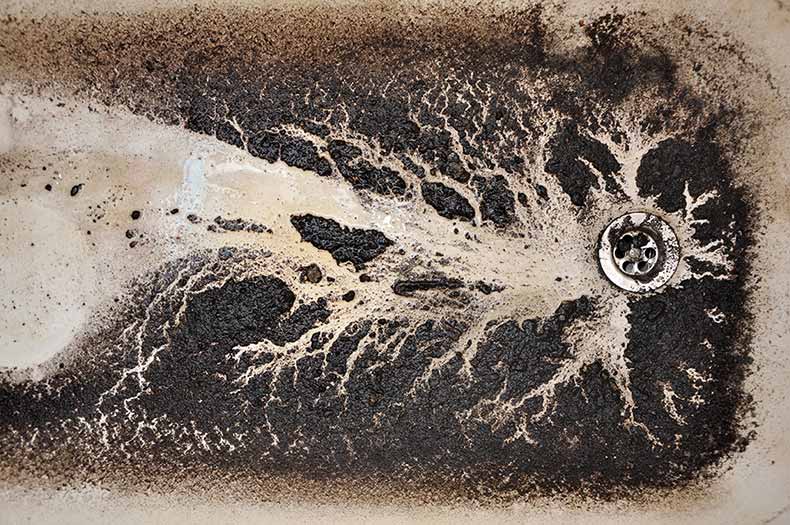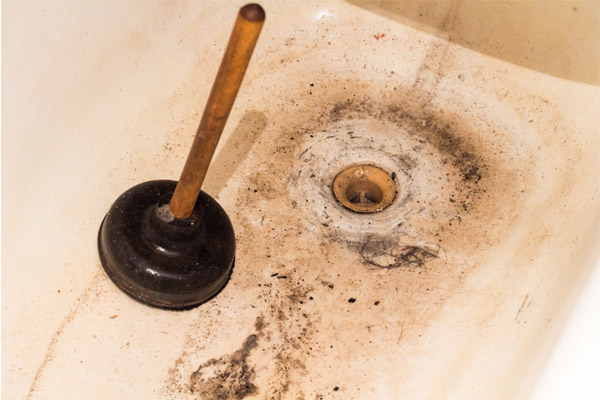An Comprehensive Guide: Discharge Rising Through the Bathtub
An Comprehensive Guide: Discharge Rising Through the Bathtub
Blog Article
Almost everyone has got their own idea in relation to Why is There Sewage Coming Up Through the Bathtub.

Sewage back-up in the bath tub can be a traumatic and unhygienic trouble for any kind of homeowner. Not only is it bothersome, but it also postures major health and wellness risks and shows underlying problems with the plumbing system. Understanding why sewer is coming up with the bathtub is important for taking appropriate action to address the issue efficiently.
Introduction to the Problem
Usual Factors for Sewer Back-up
Blockages in the Drain Line
One of the most typical reasons for sewer back-up is a clog in the sewer line. This can take place due to the build-up of debris, grease, or international things in the pipes, stopping appropriate circulation and causing sewer to support right into your tub.
Tree Origin Invasion
Tree roots looking for wetness and nutrients can penetrate sewer lines with little cracks or joints. In time, these roots can grow and expand, creating substantial damages to the pipelines and bring about sewer backup problems.
Comprehending the Trouble
When sewage draws back up into the bathtub, it's a clear indication of a problem with the drainage system. The wastewater that must be streaming far from your home is instead discovering its way back right into your living space, which can result in significant damages and health hazards.
Potential Reasons
Several elements can contribute to sewer back-up in the tub. From blockages in the sewage system line to problems with the plumbing framework, determining the root cause is vital for finding an option.
Aging Infrastructure
Older homes may have outdated plumbing systems that are a lot more susceptible to corrosion, fractures, and deterioration. As pipes age, they end up being a lot more vulnerable to leakages and blockages, enhancing the likelihood of sewer back-up incidents.
Heavy Rainfall or Flooding
During durations of heavy rainfall or flooding, the drain system may come to be overwhelmed with excess water, triggering back-ups and overflows. This can cause sewer backing up right into tubs and other components inside the home.
Indications of Sewer Back-up
Foul Odors
Unpleasant odors originating from drains or fixtures, specifically in the washroom, might show sewage back-up problems. These smells are often solid and consistent, indicating a trouble that needs prompt focus.
Slow Draining Fixtures
Tubs, sinks, and commodes that drain slowly or not in all could be experiencing sewer back-up. If several fixtures are affected simultaneously, it's likely that the problem originates from an usual factor, such as the major sewer line.
Gurgling Sounds
Weird gurgling or gurgling noises originating from drains when water is running elsewhere in the house are a sign of air trapped in the plumbing system. This air buildup can result from sewer backup and ought to be checked out without delay.
Health And Wellness Risks Connected With Sewer Back-up
Contamination of Water System
Sewage backup can contaminate the water in your house, positioning a significant health risk to you and your household. Exposure to contaminated water can result in intestinal concerns, skin infections, and various other ailments.
Mold and mildew Development
Dampness from sewer backup can develop perfect conditions for mold and mildew growth in your home. Mold and mildew spores can aggravate breathing problems and create allergic reactions in delicate people, making timely cleaning crucial.
Spread of Condition
Sewer consists of unsafe microorganisms, infections, and bloodsuckers that can create a range of conditions, consisting of hepatitis, cholera, and gastroenteritis. Entering contact with sewer or contaminated surface areas places you at risk of infection.
Cleaning Up After Sewer Back-up
Sanitation Procedures
Thoroughly decontaminate and disinfect influenced locations after sewage backup to remove damaging germs and avoid mold and mildew growth. Usage proper cleaning products and safety equipment to guarantee safe and effective cleaning.
Repair of Impacted Areas
Fix any type of damages to flooring, walls, or fixtures brought on by sewage back-up. Depending on the degree of the damages, you might require to replace carpeting, drywall, or other products to restore your home to its pre-loss condition.
Immediate Actions to Take
Switching Off Water System
In the event of sewer back-up, it's vital to shut off the water to avoid more contamination and damages. Find the major water shutoff valve in your home and shut it off till the concern can be resolved.
Calling a Specialist Plumber
Taking care of sewer back-up is not a do it yourself work. Contact an accredited plumber with experience in handling sewage-related issues to examine the situation and execute essential fixings or cleanups.
Staying Clear Of Contact with Polluted Water
Till the sewage backup is dealt with, prevent contact with infected water to avoid the spread of germs and microorganisms. Use safety gear if you must be in the afflicted location and clean your hands thoroughly afterward.
Safety nets
Routine Maintenance of Sewer Lines
Schedule normal evaluations and maintenance of your sewer lines to recognize and resolve prospective problems before they intensify into significant issues. This can include clearing out particles, inspecting for tree root breach, and repairing any type of damaged pipes.
Mounting Backwater Valves
Take into consideration mounting bayou shutoffs in your plumbing system to stop sewer from receding right into your home throughout durations of heavy rainfall or flooding. These valves automatically close when water draws back up, safeguarding your home from contamination.
Appropriate Disposal of Home Waste
Stay clear of purging anything other than toilet tissue and human waste down the bathroom to avoid obstructions and obstructions in the drain line. Dispose of oil, oil, and other household chemicals correctly to reduce the danger of plumbing issues.
Why is There Sewage Coming Up Through the Bathtub
Sewage in your bathtub is a major problem that can make you want to abandon the bathroom for good. You don’t have to. However, it is important to identify the source of the issue and take the necessary steps to resolve it in order to avoid any health risks and property damage. In this article, we will discuss what could be causing sewage to back up through your bathtub so you can take action quickly and effectively.
The Main Reason For Sewage Backup in The Bathtub
All the sinks and toilets in your home connect to different pipes that lead to the main sewer line. The sewer line then connects to the municipal sewer system. This connection works seamlessly on a daily basis, but there can sometimes be a problem with the main sewer line.
The most common cause of sewage backup is a clogged or blocked main sewer line. The main sewer line can be clogged due to the accumulation of debris, tree roots or grease buildup, or other materials. Another possible cause is a collapsed pipe. When this happens, your toilets and sinks won’t be able to drain properly. This is when sewage starts backing up through the bathtub. If the problem has been occurring for some time now, it might be time to consult with a plumber as there may be more severe damage that needs fixing.
How Can You Tell if it’s Coming From Your Sewer Line?
If you’re experiencing a sewage backup in your bathtub, then you can use a few simple methods to determine if it is coming from the main sewer line. First, try to unclog the tub drain with a plunger or an auger and see if that helps. If not, then inspect all of the drains in your house and check if there is any blockage in them. If some of the other drains are not working fine, then it’s likely the problem is with your main sewer line.
Common Signs of a Clogged Main Sewer Line
If you suspect that your main sewer line is blocked, then there are a few common signs to look out for. Frequent clogs in your home are a sure sign of a clogged sewer line. You can also check for slow drainage from all the plumbing fixtures.
Slow Drains
If you notice that it takes longer for your sinks and toilets to drain, then this could be a sign of a clogged main sewer line.
Frequent Clogs
Another common sign is that your drains or toilets become clogged almost all of the time. If this happens, then it could be a sign that the main sewer line is blocked.
Water Backup
Do you notice water or sewage coming back up from any of the drains in your home? If your answer is yes, you may have a clogged main sewer line.
Sinkholes
If you’ve noticed sinkholes in your yard or overflowing sewage from the ground, you may be facing a blocked sewer line issue.
Your Shower or Sink Makes Gurgling Noises
Have you noticed gurgling noises coming from your sink or shower lately? These are typically signs of a blocked sewer line and should be checked out immediately.
How to Prevent a Main Sewer Line Clog
Once you’ve identified that your main sewer line is clogged, it’s important to take steps to prevent it from happening again. The best way to do this is to avoid putting any solid material that can clog the drain, such as grease and other debris. You should also be mindful of what you flush down your toilet. In addition, you should schedule regular maintenance for your main sewer line. This will help keep it clear and free from clogs or backups.
What Should You do if You Notice Sewage Backing up Through The Bathtub?
If you’ve noticed sewage backing up through the bathtub, then it is important to call a professional plumber immediately. A plumber can inspect the situation and determine what the cause is, such as a blocked main sewer line. They will also be able to advise you on how best to fix the issue. In some cases, a simple drain cleaning may be all that is needed.
However, if the blockage is severe, then your plumber may need to use more advanced methods to clear the blockage.
No matter what, it is important to always call a professional plumber if you experience any kind of sewage backup. They will be able to assess the situation and provide you with a solution that is best for your home.
https://baylorinc.com/blog/why-is-there-sewage-coming-up-through-the-bathtub/

I'm very involved in Why sewage is coming up through your bathtub and I really hope you appreciated the new blog posting. Are you aware of somebody who is excited by the topic? Why not share it. Thanks a lot for your time. Return soon.
Get An Estimate
Report this page